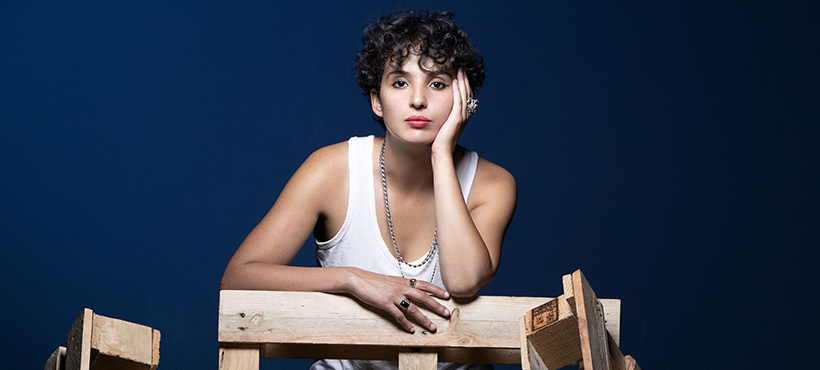Like film director Farid Bentoumi, Fatima Daas is a French-Algerian creator as a first-time author.
Daas published her debut novel, The Last One, in French in 2020 at 26 years old. The novel has since sold over 35,000 copies in France. Following its success, The Last One will be translated into 10 languages.
The Last One won the 2020 Les Inrockuptibles Literary Prize for best debut novel. The book also won Bustle’s Best Book of the Month and the Library Journal’s Best Debut Novel of the Season.
Fatima Daas pursued Creative Writing
Daas was born in Saint-Germain-en-Laye, France to Algerian parents in 1995. The youngest of three sisters, she grew up with her family in the working-class neighborhood Clichy-sous-Bois.
Daas is a practicing Muslim along with her family, from praying five times per day to eating halal food.
“Religion occupies a central place in my life, but it is not something that limits me. On the contrary, it builds me and makes me grow,” Daas told El Pais.
In high school, Daas attended workshops by French novelist Tanguy Viel. She later discovered authors Annie Ernaux and Marguerite Duras, whom she quotes in The Last One.
Daas pursued a master’s in creative writing at Paris 8 University. She wrote her debut novel as part of her coursework.
Fatima Daas is a Pseudonym
The Last One is translated from the French title La Petite Dernière. The novel is a semi-autobiographical coming-of-age story about a young Muslim woman who struggles with her sexuality.
Fatima Daas is the name of the novel’s main character as well as the author’s pseudonym.
“Address me as Fatima Daas,” the author told Teller Report. “I had to be reborn in her skin to write this novel. That’s the amazing thing: I can say ‘I’ in a very intimate, private way without this I being the truth.”
The novelist reasoned that she wanted to play with identity while not involving her family. Her parents will not read the book, the author told El Pais.
“My father is illiterate and my mother preferred to keep her distance,” she said.
Daas describes herself as an intersectional feminist.
“I grew up with the idea, whether in films or in books, that I did not exist,” Daas told the New York Times. “I didn’t exist as a young lesbian, Muslim woman, with an immigrant background,” she added. “So the question I have asked myself a lot is, ‘How do we shape ourselves when we have absolutely no representation?’”
“If you want to be French today, a fully French citizen, you have to give up one of the fragments of your identity,” she said. “But we are full of paradoxes.”
The Last One: an Award-winning Novel
Daas’ debut novel tackles internalized homophobia and the writer’s conflicting identities as a Muslim lesbian woman and immigrant. How much is fiction and how much is autobiographical is left to the reader to guess.
“What is autobiographical is the feeling of not being in the right place,” she said.
In The Last One, Fatima is the youngest of three sisters of an immigrant family from Algeria. She is the only one to be born in France. Fatima develops romantic relationships with women despite considering homosexuality a sin as a Muslim. She grapples with these issues while struggling to fit in at school and while living in a rough suburb of Paris.
The novel uses traditional narrative forms close to Quranic Surahs. Daas delivers her story in short, straightforward sentences. She begins each paragraph with “I am Fatima,” along with similar affirmations.
“She carves out a portrait, like a patient, attentive sculptor,” wrote novelist and filmmaker Virginie Despentes.
“Fatima Daas signs an autofiction with a striking lyricism between slam and prayer with a heady rhythm, dancing like the rounds of a dervish,” reviewed author Sean James Rose in Livres Hebdo.
The book was released in the US on November 23, 2021. It is available for purchase from Penguin Random House here and from Amazon here..



